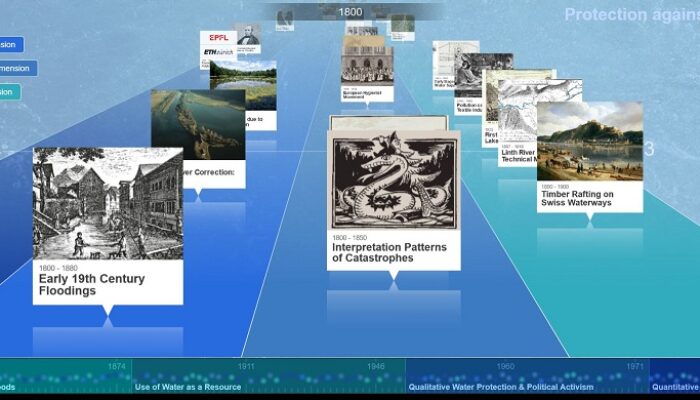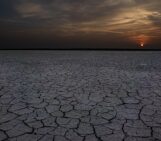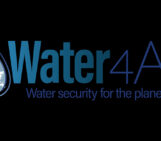
How can we use and manage natural resources more sustainably? This question stands at the core of many social, political and scientific debates about how we can reach the United Nation’s Sustainable Development Goals (SDGs). The targets are ambitious, and there is a growing consensus that rapid and extensive structural change is needed in various sectors simultaneously. However, how transformations emerge, which socio-political, technical and ecological processes affect them and whether and how these can be steered towards increasing sustainability, remain widely and controversially discussed questions.
A Swiss example
In our research and communication project “History of Swiss Water Protection since 1800”, a team from the Department of Environmental Social Sciences at Eawag documented an example of a long-term transformation process. Based on specific events, the developed water timeline guides visitors through the past and demonstrates how the management of Swiss water bodies gradually transformed into the direction of sustainable development. Although water management in Switzerland still faces major challenges such as biodiversity loss, habitat fragmentation or micropollutants, significant progress has been made in various respects since the 1950s. Based on historical milestones (illustrated with images, text and sound), the timeline provides exciting details, links to further information and illustrates how the interaction between technology, politics, society and ecology is shaping transformations towards sustainable development.
Milestones of transformation
The project’s main aim is to illustrate under which conditions transformations towards sustainable development become possible. Even though the lessons derived from water management cannot be transferred one-on-one to other societal challenges, such as climate change or biodiversity loss, the case study still provides key insights into how profound, structural change arises. In the case of Swiss water management, the complex interaction between visionary individuals, organizations, technical progress, research, increased public awareness and related political actions led to several paradigm shifts in how we deal with our water bodies. By illustrating these developments in an open and accessible way, the water timeline project aims to inspire political and academic circles to translate key lessons from the timeline when promoting transformations toward sustainable development in other sectors.
How to compile a timeline?
The timeline was synthesized based on interviews with key experts within the Swiss water sector. In addition to the interviews, extensive literature reviews and a compilation of historical sources served as the foundation for the timeline’s content. Pictures and videos illustrate individual events. The project team hopes to spark the interest of a broad audience, and to make the timeline a key input to broader dialogues on sustainable development in the water sector and related contexts. The water timeline will be continuously updated and improved. We look forward to receiving your comments and suggestions or links to similar water-related projects!



